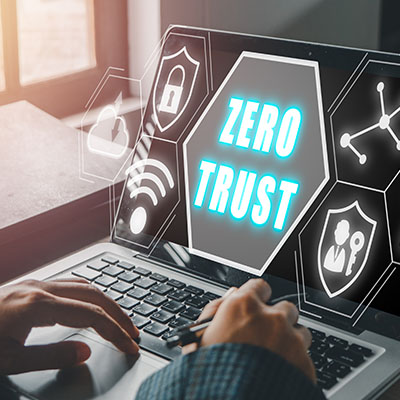Implement Zero Trust Policies to Combat Ransomware

Yes, Ransomware is Common Enough to Warrant This Measure
Ransomware infections, according to recent surveys, have affected three out of four professional organizations in some capacity over the past year. That?s a huge portion of businesses, and it?s no laughing matter. You need to protect yourself in any way you can. Ransomware can have various negative effects on your business, such as the following:
- Ransomware impacts productivity in at least some capacity
- Ransomware can lock down your data or steal it before encrypting it. Your data can be sold on the Dark Web where hackers can have a field day with it.
- You could be left with encrypted data if you fail to pay the ransom. This doesn?t mean to pay it though, as it could still happen even if you do pay the ransom.
- Your business? reputation could suffer due to a cybersecurity failure such as a ransomware attack, leading to fewer clients and business partners.
- Your budget could take a hit from regulatory bodies imposing fines and other penalties.
A zero-trust policy can significantly improve your likelihood of never encountering these circumstances.
Zero-Trust Leverages the Principle of Least Privilege
Imagine that your company has multiple security checks in place to ensure that no individual accesses anything they are not supposed to without first authenticating their identity. This is what zero trust entails; it means you have complete and total control over who accesses what, when, and how, and you can see at a glance who performs what actions based on access logs. You can restrict access per individual or per role, ensuring that your systems are only accessible by those who are authorized and those who need access to do their jobs.
It?s easy to see how this framework can be applied to ransomware and other security threats to your business. It could potentially prevent an infection before it has a chance to really latch onto your system, or at least limit infections so that they can be promptly addressed and eradicated.
White Mountain IT Services Can Build Your Zero-Trust Policy For You
At White Mountain IT Services, we take pride in our security solutions and protecting our clients. Let us help you build the best protections against modern-day security threats. Reach out to us today at (603) 889-0800 to get started.

